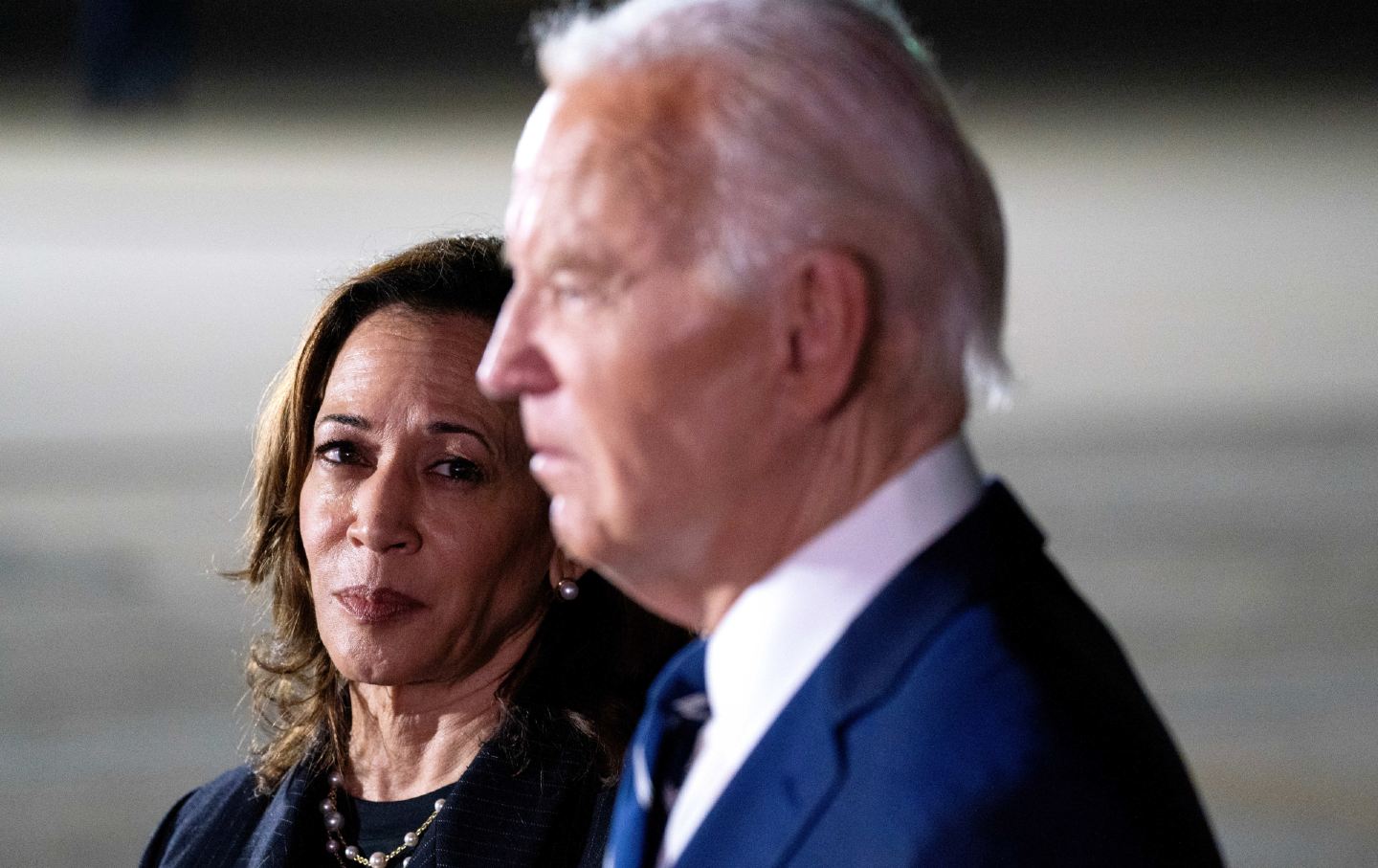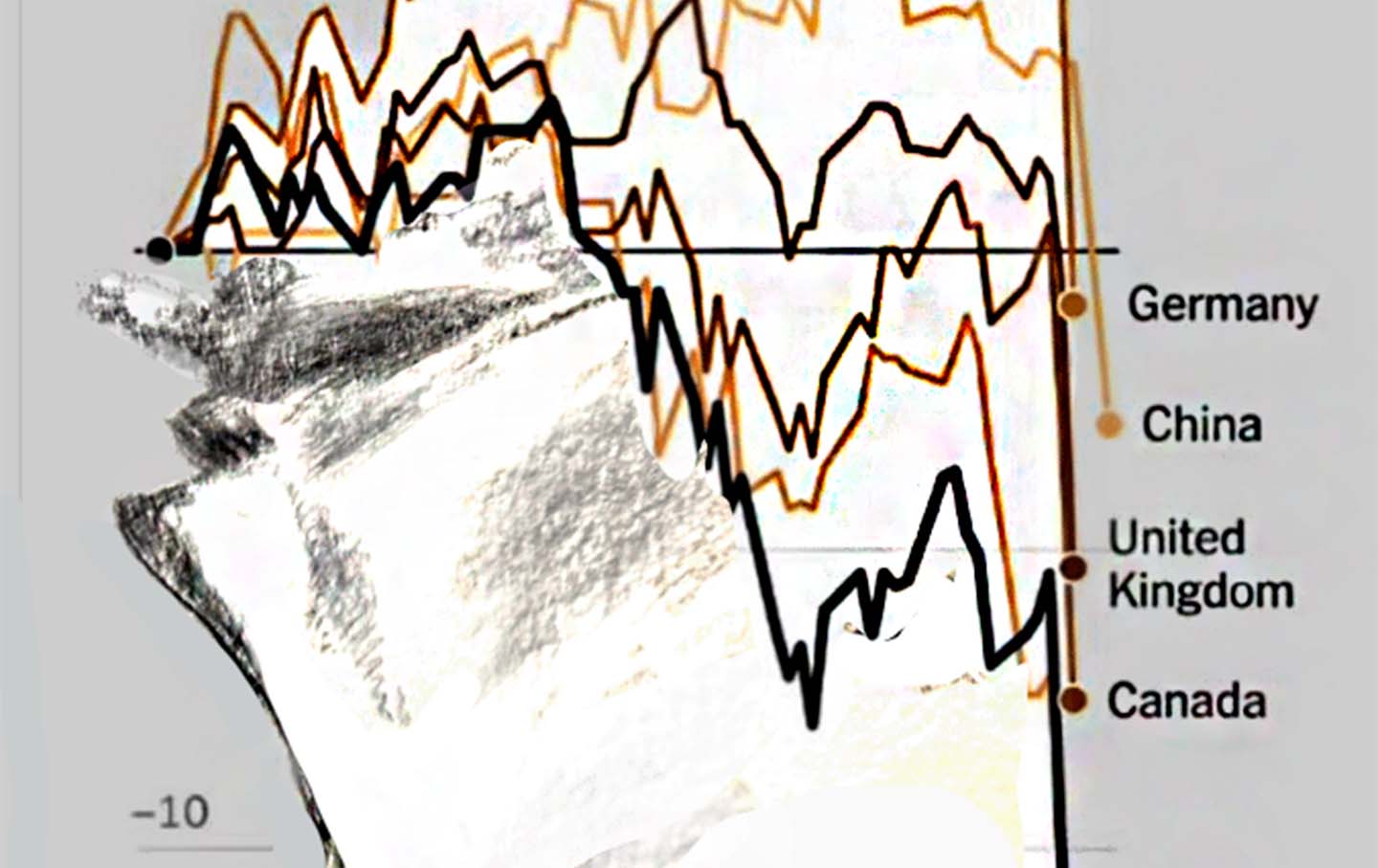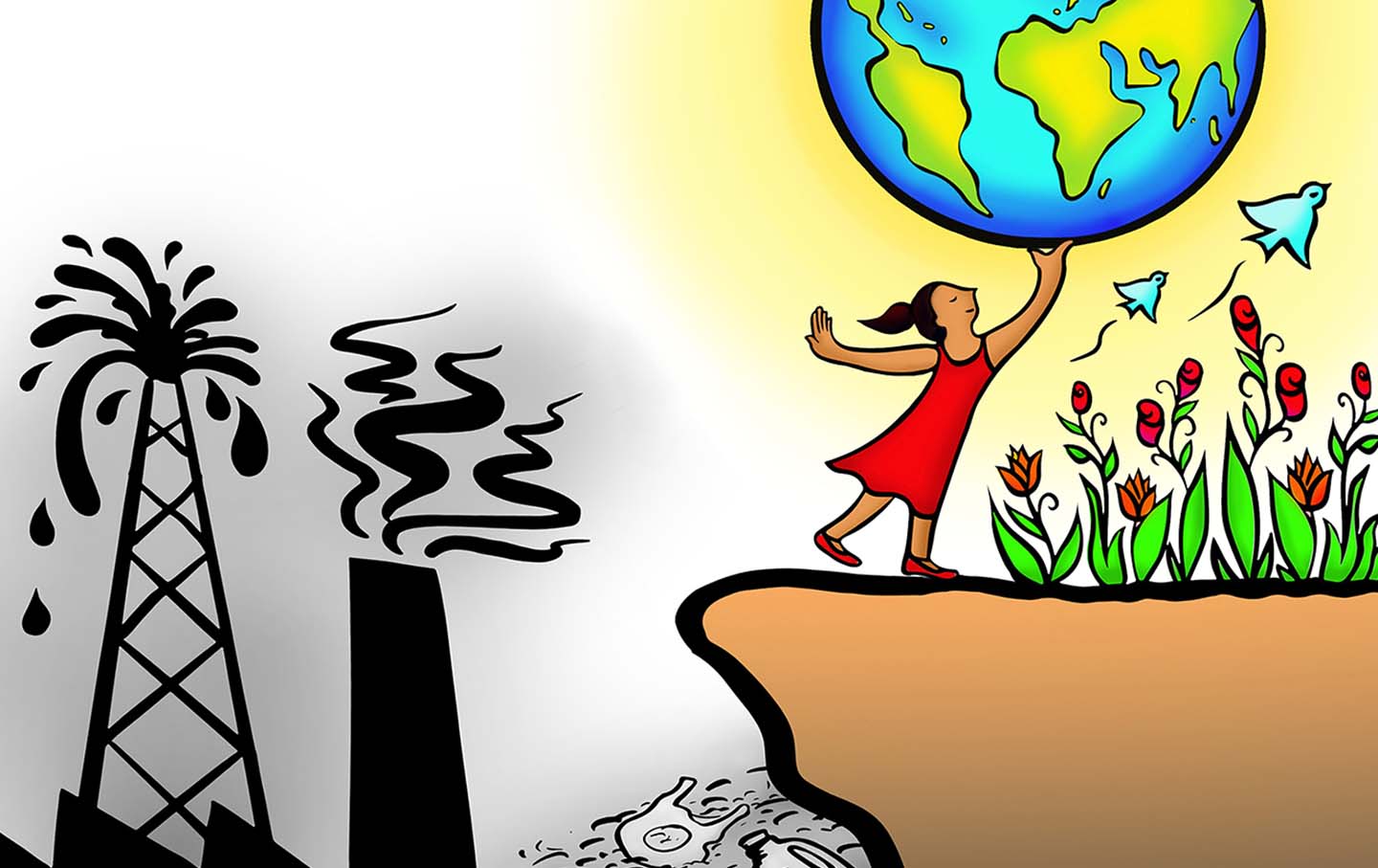Joe Biden’s Lame-Duck Foreign Policy Is a Threat to Kamala Harris—and the World
A lame-duck president averse to diplomacy poses grave dangers at home and abroad.

After Joe Biden’s dramatic withdrawal from the presidential race July 21, he immediately became a lame-duck president. The phrase “lame duck” is excessively harsh, suggestive as it is of a weakened and incapacitated state. In fact, being a lame duck can be liberating. A lame-duck president doesn’t have to worry about winning reelection or pleasing big donors. Biden’s Democratic predecessor Barack Obama used executive authority in a number of bold ways in his last year in office, protecting undocumented immigrants who arrived in America as children and commuting the sentences of nonviolent drug offenders. Such actions even earned Obama the accusation of Caesarism from conservatives.
Could Joe Biden use his lame-duck period with similar boldness? That would be ideal, but Biden has little of Obama’s nimbleness. In fact, the real danger is that Biden remains so committed to his old policies that he exacerbates a foreign policy crisis that could upend the election and the world, unleashing a chaos that will help bring Donald Trump back into the White House.
One reason Joe Biden was reluctant to give up his bid for reelection was that he considers himself to be a foreign policy sage, someone with a deep wisdom acquired by age that no one else possesses. When he met with congressional Democrats last month, Biden fended off calls to withdraw from the presidential race by boasting of what he considers his unmatched foreign policy record:
Name me a foreign leader who thinks I’m not the most effective leader in the world on foreign policy.… Tell me who enlarged NATO, tell me who did the Pacific basin!… I’m proud of your leadership, but guess what, what’s happening, we’ve got Korea and Japan working together, I put AUKUS [a trilateral alliance of Australia, the United Kingdom and the United States] together, anyway!
In trumpeting his own horn so loudly, with a belligerence born of the fact he was politically beleaguered, Biden actually revealed the limits of his foreign policy vision. Biden is older than NATO, and as a true child of the Cold War, he thinks of foreign policy in terms of creating great alliance systems that secure American hegemony. Like Dean Acheson, Biden views himself as a man who was “present at the creation.”
But the Cold War is long over. In a multipolar world, foreign policy consists not just of building alliances but also negotiating with foes—and sometimes forcing recalcitrant allies to go to the negotiating table (as Bill Clinton did when he pressured the government of the United Kingdom to sign the Good Friday Accord in 1998). This type of foreign policy, building lasting structures of peace, is something Biden has not shown any talent for. Barack Obama eased the trade embargo on Cuba and reached a nuclear agreement with Iran—both significant moves that were reversed by Donald Trump. It’s striking that Biden has never tried to revive Obama’s genuine attempts to reach out to traditional foes. When it comes to Cuba and Iran, Biden is closer to Trump and other bellicose Republicans than to Obama.
The recent prisoner exchange with Russia, which saw the release of 26 people (16 returned to Germany and the United States including Wall Street Journal reporter Evan Gershkovich, and 10 returned to Russia), was so striking in part because it marked an exception to Biden’s foreign policy. This was a rare case where the president actually used his skills as a horse trader (which are always in play in domestic politics) on the international stage.
But however welcome the prisoner exchange is, it is of little consequence unless it presages Biden overcoming his aversion to diplomacy. The dismaying reality is that the United States is currently engaged in arming two major wars, helping Ukraine defend itself from Russian invasion and siding with Israel as it pummels Gaza. In both wars, Biden’s policy has been feckless and inert, with little effort devoted to finding a solution to end either conflict. This is particularly dangerous in the Middle East, since Israeli Prime Minister Benjamin Netanyahu has constantly risked escalating the war beyond Gaza into a regional conflagration embroiling Lebanon, Yemen, Syria, and Iran. With the assassination last week of Hamas leader Ismail Haniyeh while he was a guest in Iran, the wider war in the Middle East threatens to spiral out of control.
As foreign policy analyst Anatol Lieven recently noted in Responsible Statecraft, the Biden administration doesn’t have a coherent policy in Ukraine, just a series of ad hoc responses to hold the line. According to Lieven, “the Biden administration would appear to be asking the American people to spend indefinitely tens of billions of dollars a year on an endless war for an unachievable goal.”
Lieven quotes a cogent report from the Rand Corporation that notes that “adaptation and adjustment do not constitute strategy, and reactive escalation absent a strategy is not sound policy. Escalating U.S. involvement in this conflict—or any conflict—should be guided by an idea about how to bring the war to an end.”
The same policy of “adaptation and adjustment” characterizes Biden’s Middle East policy, where he has consistently been reacting to the actions of Benjamin Netanyahu without any clear strategy for reining in Israeli provocations.
Writing in The New York Times, Matthew Duss and Nancy Okail, both with the Center for International Policy, cogently blame the current crisis on Biden’s overriding commitment to building an alliance system between the United States, Israel and Saudi Arabia. As they note:
The current precarious moment is the result of a series of false assumptions that U.S. policy was built on since well before the war began. On Oct. 6, the United States was heavily focused on stitching up an agreement between Israel and Saudi Arabia, premised in part on the idea that the Palestinian people could simply be caged in perpetuity, with a few upgrades here and there to the military occupation they have endured for nearly six decades, and a few nominal commitments to someday, maybe, end that occupation.
This prioritising of building an alliance system has been coupled with a blank check to Netanyahu that has brought the region to the brink of catastrophe.
Popular
“swipe left below to view more authors”Swipe →Duss and Okail argue that
the time is late, but it is essential now for President Biden to finally apply real pressure to stop this war, by halting the supply of offensive arms, facilitating the return of hostages to Israel and enabling the provision of desperately needed humanitarian aid into Gaza. The United States must state loudly and clearly that the country will no longer support this war.
Alas, there is little reason to believe that Biden on his own will change his disastrous policies. He still has the same foreign policy team that created this mess: Secretary of State Antony Blinken, national security adviser Jake Sullivan, and Middle East coordinator Brett McGuirk.
One positive quality possessed by Biden is that he does listen to outside criticism. He was slow to give up his reelection bid, but the reported backdoor pressure of Barack Obama and Nancy Pelosi forced him to listen to reason. Perhaps a similar change of heart can occur if the right parties make clear to Biden that he’s guiding the country on a dangerous path.
One way the situation might change is if Kamala Harris herself puts pressure on Biden and his team. She needs to make clear in private that these failed policies are a direct threat to American interests—and could bring Donald Trump to power, which itself would destroy the liberal international order these men claim to serve.
Biden and his foreign policy advisers are a lame-duck team that will, in the best circumstances, be replaced by Harris and her team. She needs to use her status as the voice of the future to change the actions of men stuck in the past.








